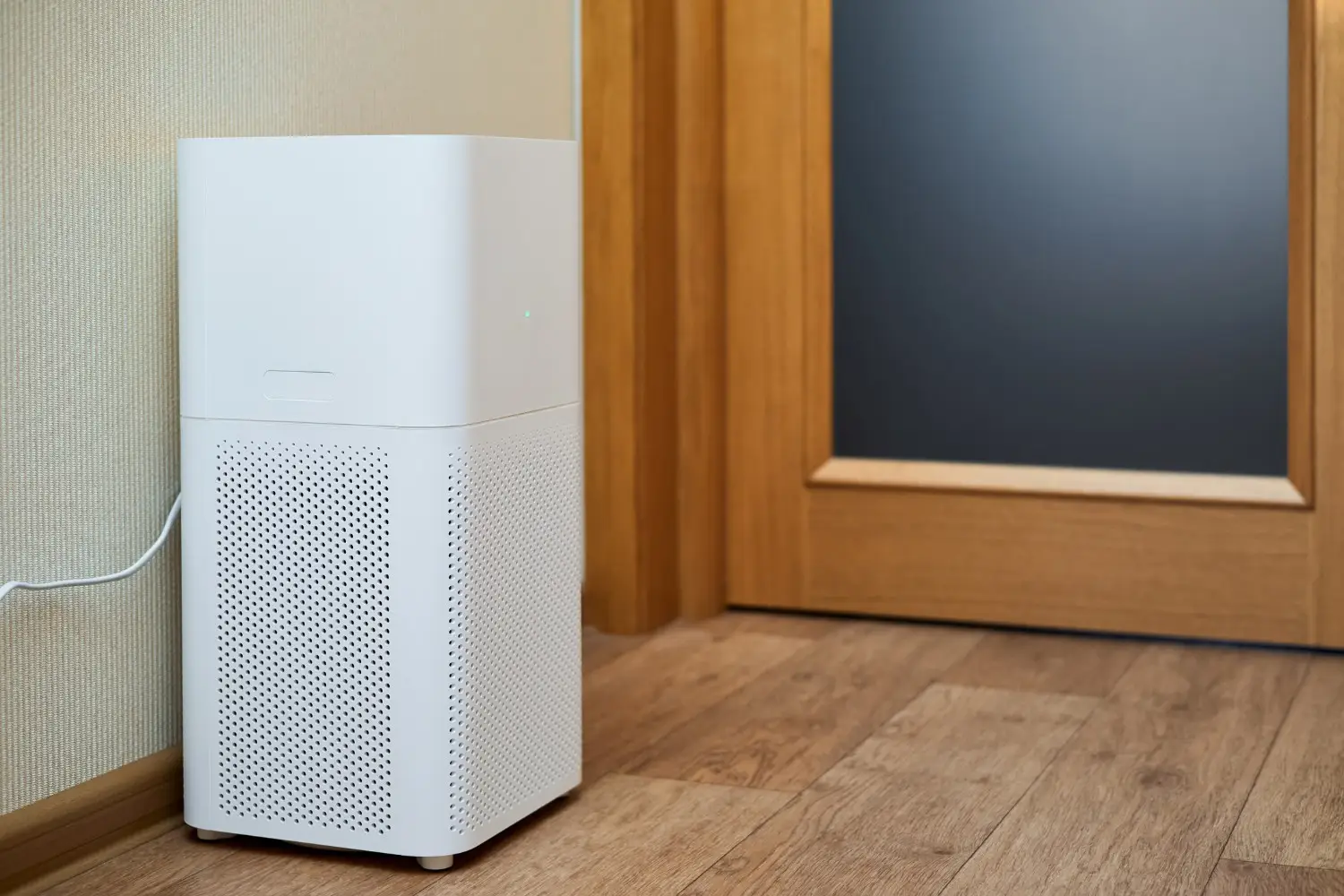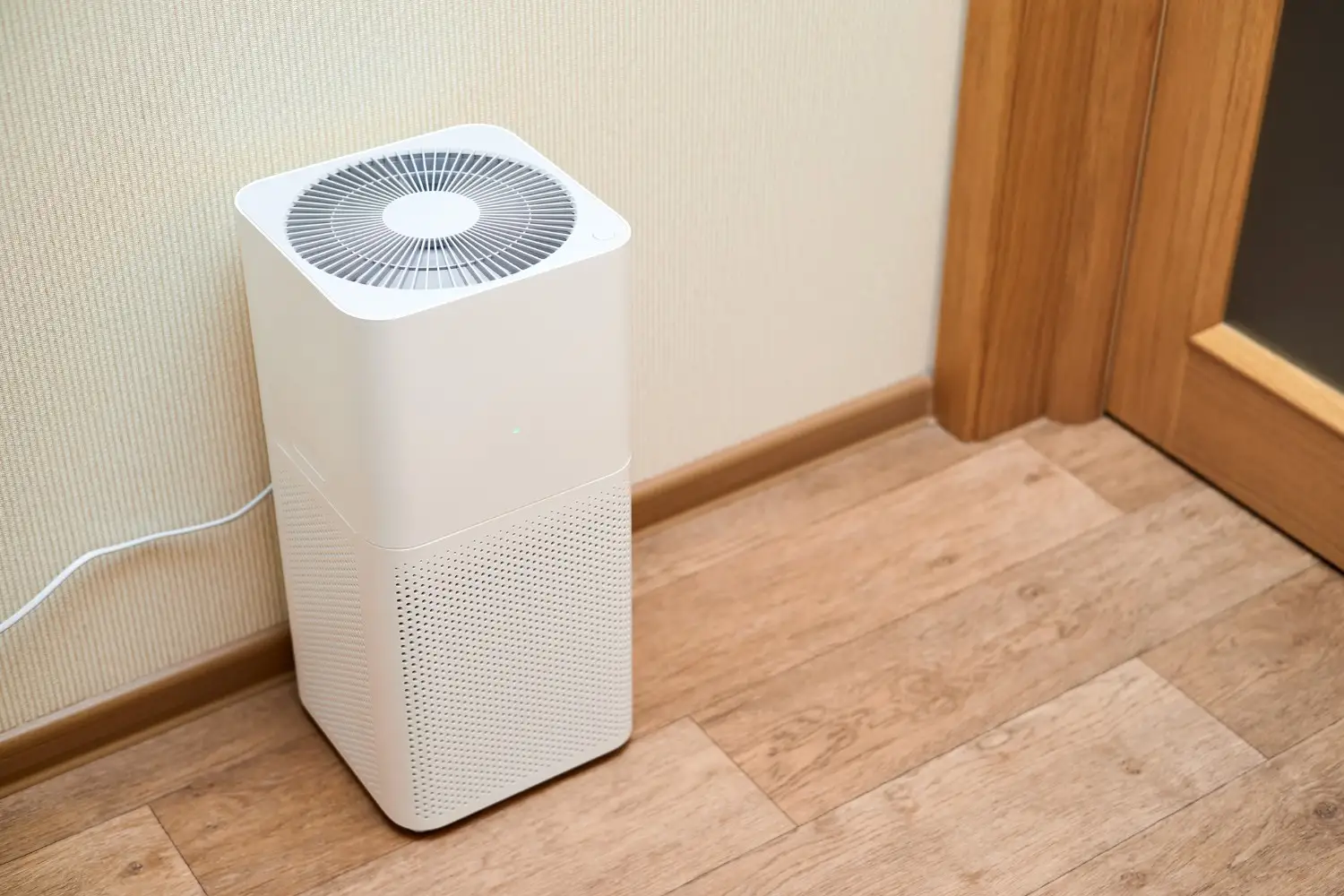Indoor Air Quality in Ventura, CA
Serving Ventura & Sacramento Counties

Comprehensive Indoor Air Quality Services in Ventura, CA
The air you breathe inside your home or business is essential to your health, comfort, and overall well-being. While Ventura boasts beautiful coastal air, indoor environments can trap pollutants, allergens, and contaminants at much higher concentrations than outdoors. Factors unique to our region—such as seasonal wildfire smoke, Santa Ana winds, and coastal humidity—can directly impact the air circulating within your property. At AirWorks Heating Air Plumbing, investing in indoor air quality (IAQ) means investing in a healthier, more comfortable, and more productive space for your family, employees, and customers.
Signs Your Indoor Air Quality May Be Compromised
Poor indoor air quality often goes unnoticed but can leave telltale signs. If you or others in your property are experiencing ongoing issues, the air itself may be the cause. Key indicators include:
- Recurring Health Symptoms: Headaches, fatigue, dizziness, or nausea that improve when leaving the building.
- Allergy and Respiratory Flare-Ups: Increased allergy symptoms, asthma attacks, coughing, sneezing, or irritation of eyes, nose, and throat indoors.
- Persistent Odors: Lingering musty or stale smells that may signal mold, mildew, or bacteria.
- Excessive Dust: Rapid dust buildup after cleaning, pointing to filtration or ductwork issues.
- Uneven Humidity: Air that is excessively damp or overly dry, encouraging mold growth or discomfort.
- Visible Mold or Mildew: Growth on walls, ceilings, or in damp areas like bathrooms and basements.

Common Indoor Pollutants Found in Ventura Homes
Indoor air can contain multiple pollutants from inside and outside sources. At AirWorks Heating Air Plumbing, we identify and address contaminants such as:
- Mold, Mildew, and Bacteria: Moisture from our coastal climate can encourage growth, releasing spores that cause allergic and respiratory issues.
- Volatile Organic Compounds (VOCs): Emitted from products like paints, cleaners, new furniture, carpets, air fresheners, and pesticides—causing headaches, throat irritation, and more.
- Particulates (Dust, Dander, and Pollen): Common allergens from pets, dust mites, and local plants that easily circulate through HVAC systems.
- Combustion Byproducts: Gases like carbon monoxide and nitrogen dioxide from appliances and fireplaces without proper ventilation.
- External Pollutants: Wildfire smoke, vehicle exhaust, and industrial emissions that seep indoors.
Our Comprehensive Indoor Air Quality Solutions
We offer tailored services to diagnose and resolve IAQ problems in Ventura homes and businesses. AirWorks Heating Air Plumbing focuses on solutions specific to your property’s needs.
Professional Indoor Air Quality Testing
We use advanced equipment to inspect your property and test for mold spores, VOCs, allergens, and particulate matter. Results allow us to create a targeted plan for cleaner air.
Advanced Air Purification Systems
Whole-home air purifiers integrated into your HVAC system can neutralize pollutants using UV-C lights to destroy bacteria, viruses, and mold spores, or PCO technology to break down chemical vapors and odors.
High-Efficiency Air Filtration
Upgrading from standard filters to high-MERV media air cleaners allows for better capture of dust, dander, pollen, and fine particles without reducing airflow.
Whole-Home Humidity Control
- Dehumidifiers: Eliminate excess moisture that fosters mold and dust mites.
- Humidifiers: Add necessary moisture during dry conditions to prevent skin irritation, throat discomfort, and static electricity.
Thorough Air Duct Cleaning
Using powerful vacuums and specialized tools, we remove years of accumulated dust, allergens, pet dander, and mold from ducts—improving air quality and HVAC efficiency.
Frequently Asked Questions About Indoor Air Quality
How often should I have my IAQ tested?
When moving into a new home, after renovations, or if unexplained symptoms occur. Otherwise, every few years is recommended.
What’s the difference between an air filter and an air purifier?
Filters trap airborne particles, while purifiers actively neutralize biological contaminants and chemical vapors. Many homes benefit from both.
How often should I change my HVAC filter?
Standard one-inch filters: every 1–3 months. High-efficiency media filters: every 6–12 months, depending on factors like pets, allergies, and local conditions.
Can improving IAQ lower energy bills?
Yes—clean ducts and efficient filters improve airflow, reduce equipment strain, and can lower utility costs.
Take the First Step Toward Cleaner, Healthier Air
Don’t wait until poor air quality starts affecting your comfort, health, or productivity. With AirWorks Heating Air Plumbing, you can breathe easier knowing your home or business is protected from hidden pollutants, allergens, and contaminants. Our expert team will assess your space, recommend the right solutions, and ensure you enjoy fresh, clean air every day of the year.
Call AirWorks Heating Air Plumbing today to schedule your professional indoor air quality assessment and start creating a healthier environment for everyone inside.


